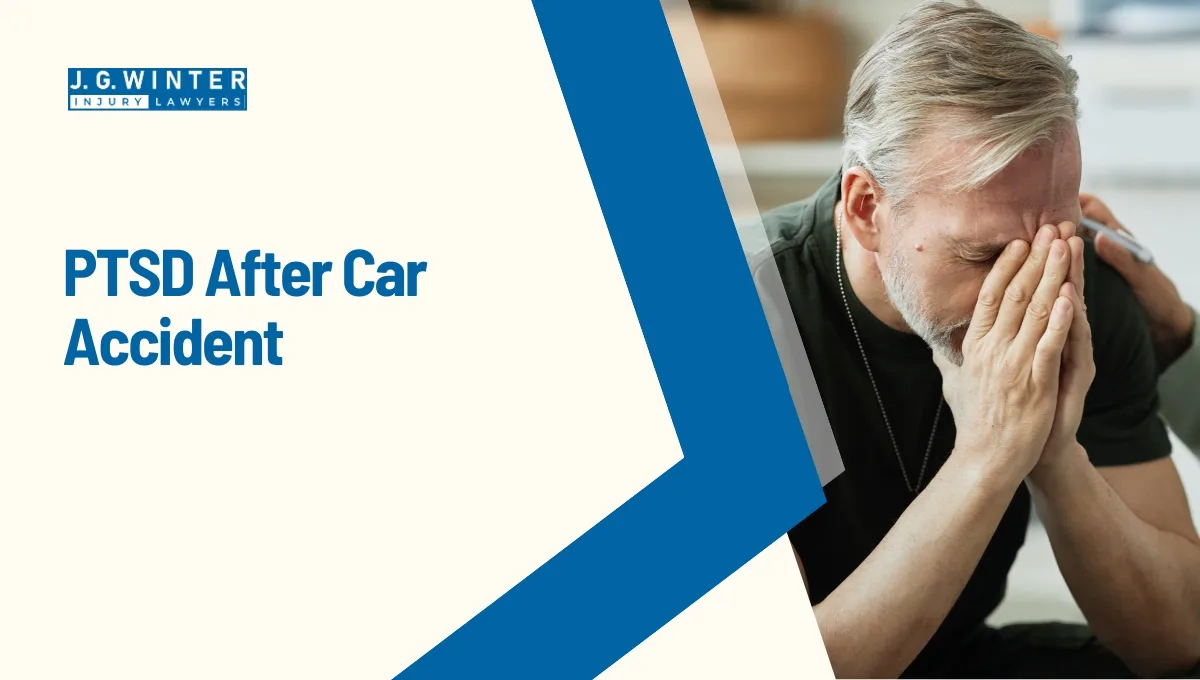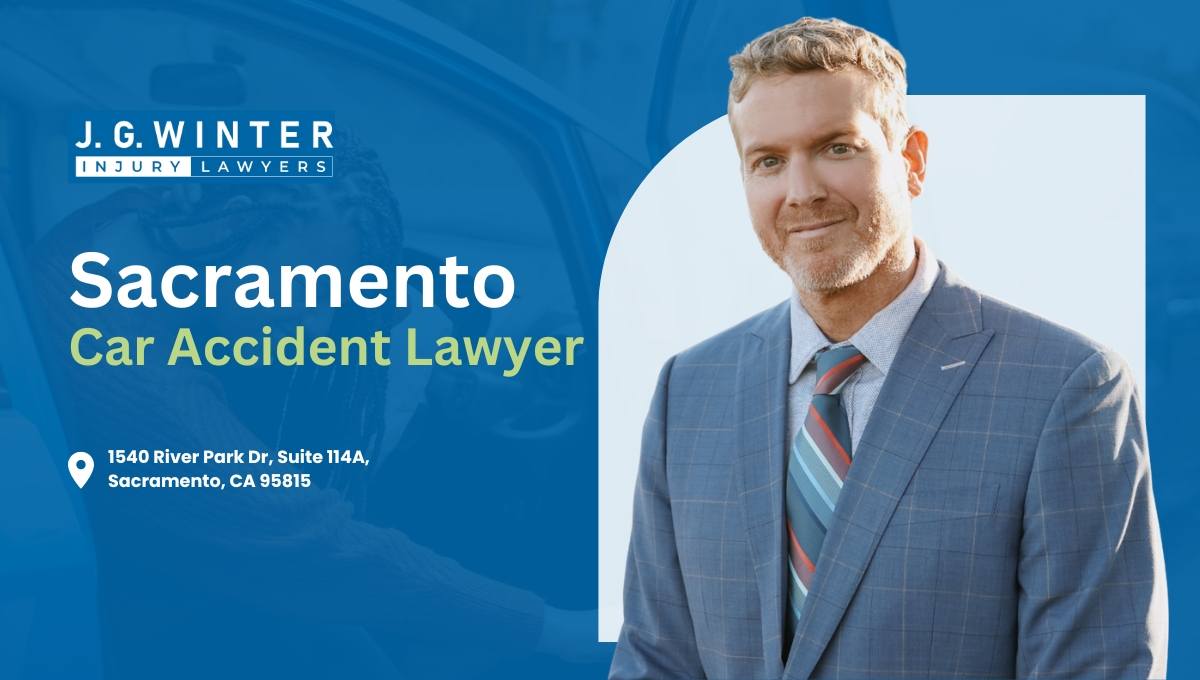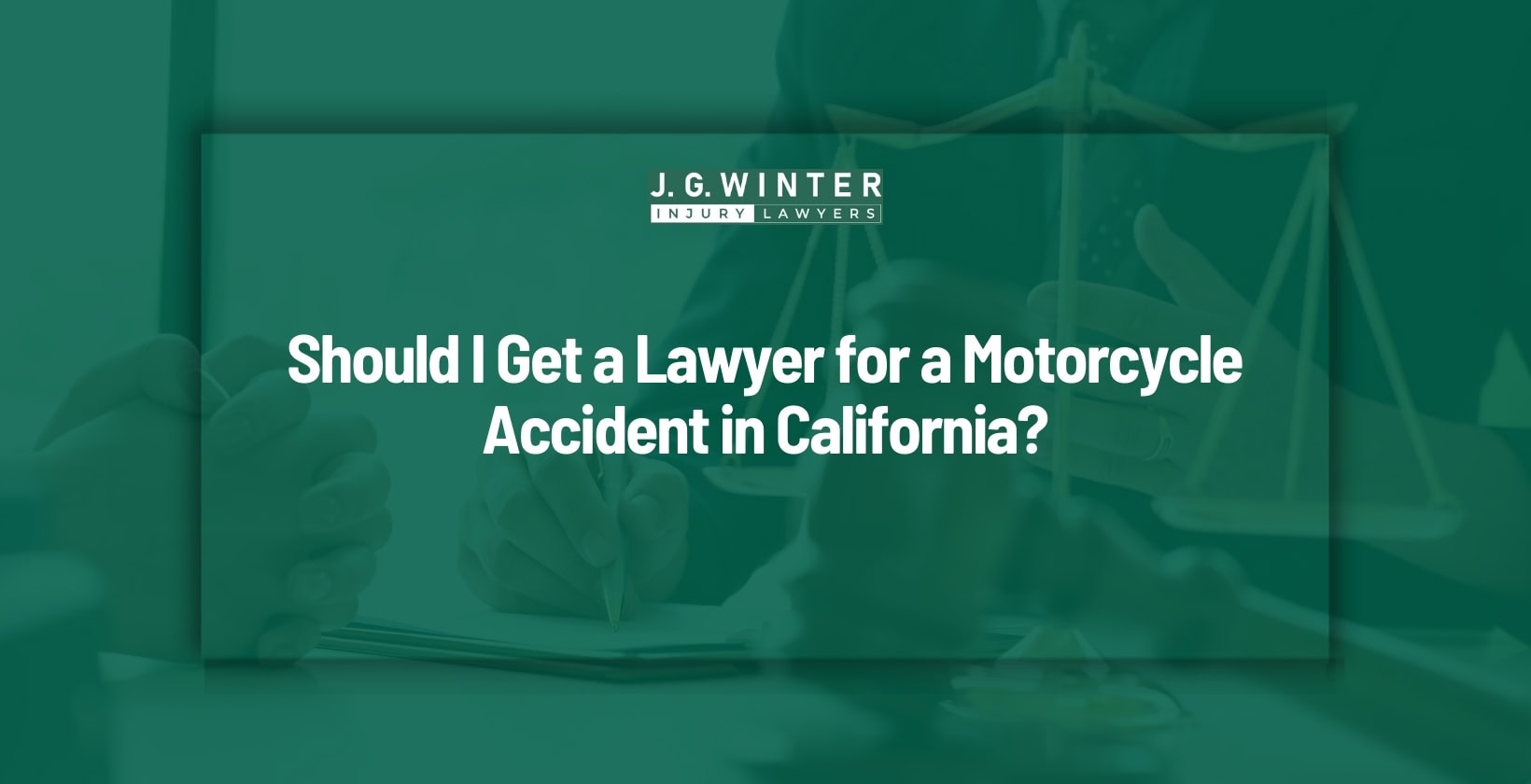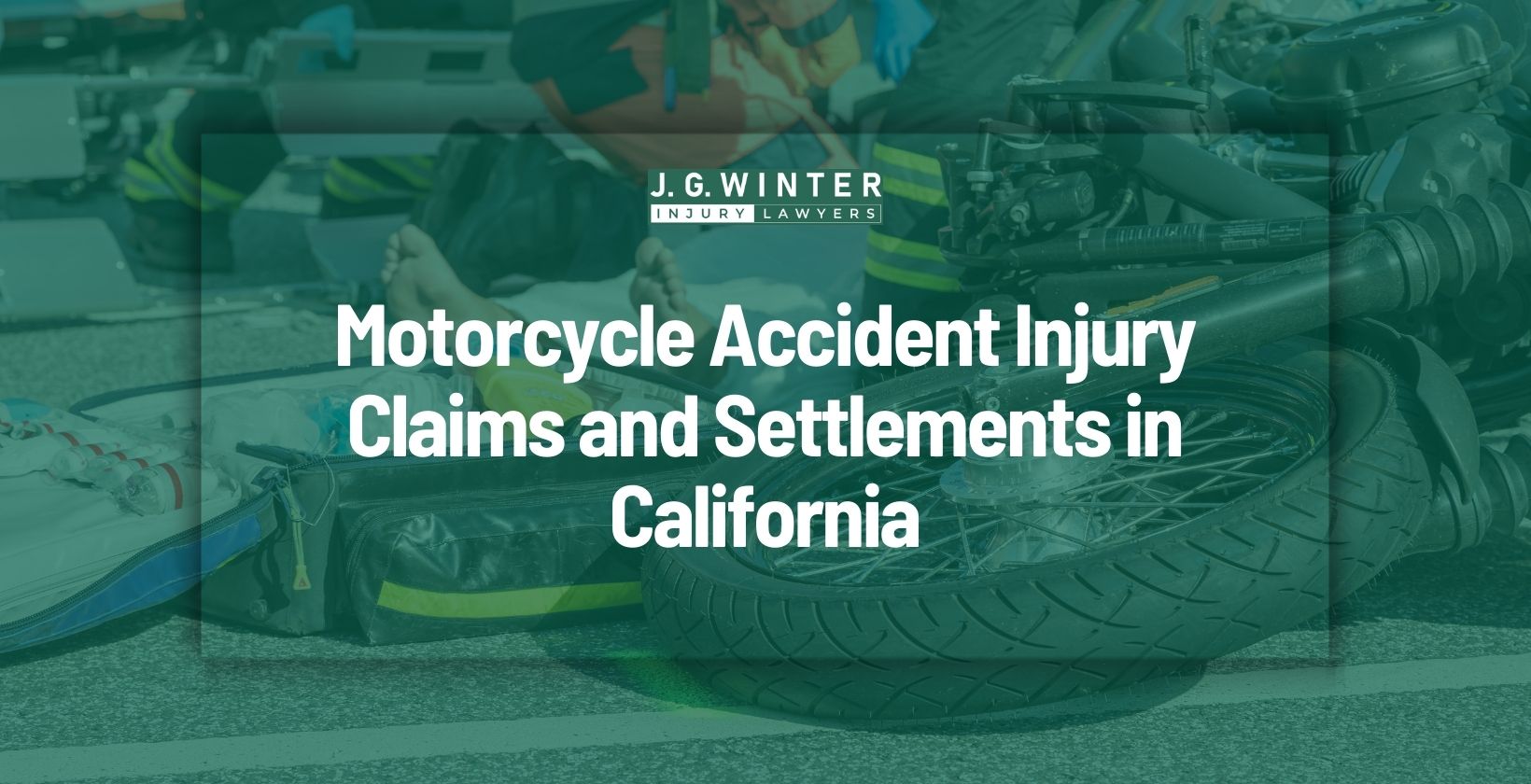A car accident can change your life in ways you never expected. Long after the physical injuries heal, you might still feel trapped by persistent fear, sadness, emotional disconnection, or intrusive memories that refuse to fade. If you are suffering from one or more of these symptoms, you are not alone, and there are tried-and-true methods for restoring normalcy to your life. Studies show that nearly one in three accident survivors experience symptoms of PTSD after car accident, often without realizing it.
PTSD (Posttraumatic Stress Disorder) after a car accident is a serious mental health condition that can quietly take over your thoughts, emotions, and daily life. Recognizing these signs early increases your chance of faster recovery and better support.
Here are seven signs of PTSD after a car accident you should never ignore.
1. Flashbacks and nightmares
Flashbacks and nightmares represent two primary symptoms of PTSD after a car accident. Flashbacks are episodes that recreate vivid memories of the crash, often triggered by sounds, smells, or visual cues. Nightmares are visions that occur during periods of sleep and cause sudden awakenings filled with fear and distress.
For example, loud car horns may provoke vivid mental images of the crash. Sudden awakenings drenched in sweat are a signal of recurring traumatic memories. Flashbacks and nightmares disrupt emotional balance and daily functioning. Identifying these manifestations early increases your chance of achieving faster emotional recovery.
2. Avoiding driving or talking about the crash
Avoidant behaviors are common symptoms of PTSD after a car accident. Many survivors avoid driving, riding in cars, or approaching the crash site to prevent triggering traumatic memories. Refusing to talk about the crash often signals deep emotional distress linked to PTSD.
For example, survivors may take longer routes to avoid accident scenes or feel overwhelming anxiety when in or around vehicles. Being silent about the incident can hamper emotional healing and reinforce internal trauma.
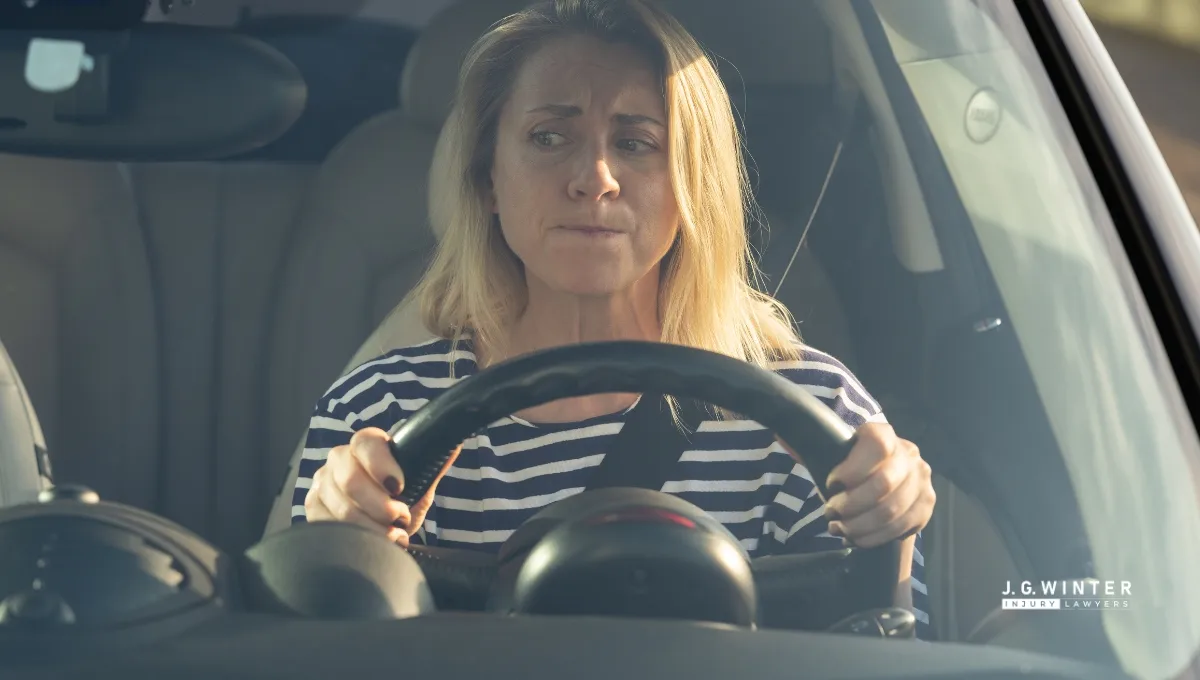
3. Sudden mood swings or irritability
Sudden shifts in mood and frequent crankiness are common emotional symptoms of PTSD after a car accident. The nervous system remains highly reactive even in safe situations, causing abrupt emotional outbursts. Survivors often express anger, frustration, or sadness in response to minor triggers.
For example, sitting in a simple traffic delay may provoke intense anger or sudden crying spells. These kinds of emotional reactions signal that the brain is still processing trauma from the crash.
4. Feeling numb or emotionally disconnected
Emotional numbness is a common symptom of PTSD after a car accident. It reflects the mind’s attempt to shield itself from pain after trauma. Survivors may feel disconnected from family, friends, or even themselves. Moments that once brought joy can feel flat or distant, as if you are watching life events unfold from a distance.
Mental health professionals explain that emotional numbness often follows periods of intense fear or helplessness. Although detachment may seem protective, it often makes rebuilding trust, emotional connection, and hope an uphill battle.
5. Trouble sleeping or concentrating
PTSD after a car accident often traps the mind in a state of hyperarousal, making restful sleep difficult. Racing thoughts, jumpiness at small noises, and restless nights are common struggles for survivors. Even when a victim is able to catch some sleep, frequent interruptions and awakenings often leave survivors feeling exhausted and listless to start their next day.
Intrusive memories and constant alertness also reduce one’s ability to concentrate. Survivors may forget simple tasks, zone out during conversations, or struggle to complete work. These patterns indicate that the mind is still trying to protect itself from a danger that no longer exists, maintaining a constant state of vigilance and emotional tension.

6. Feeling anxious or on edge
Feeling anxious or constantly on edge is a strong indicator of PTSD after a car accident. Survivors scan rooms, check mirrors repeatedly while driving, or jump at sudden sounds. These reactions are symptoms of a condition called hypervigilance, which occurs because the nervous system remains stuck in survival mode long after the threat has ended.
Living in a constant state of alert strains both the body and mind. Physical tension, intermittent racing pulse or heartbeat, and irrational fear can become an inescapable part of one’s daily life without conscious awareness.
7. Withdrawing from social life
After a traumatic car accident, many PTSD survivors withdraw from friends, family, and activities they once enjoyed. Shame, distrust, and emotional exhaustion can make socializing feel overwhelming. Survivors may isolate themselves to avoid judgment or the fear of being misunderstood.
While withdrawal may seem protective, it often deepens feelings of loneliness and sadness. Over time, avoiding social interaction can stunt emotional recovery.
How PTSD after a car accident can affect your life
PTSD after a car accident affects emotions, work, and relationships, making daily life feel cluttered and overwhelming. Recognizing its impact early is the first step toward rebuilding strength and restoring emotional balance.
Emotional and mental impact
PTSD after a car accident can trigger intense anxiety, depression, and sudden panic attacks that disrupt daily life. Many survivors experience identity loss, feeling disconnected from the person they once were. These emotional wounds often cause isolation, missed life opportunities, and a prolonged struggle with self-esteem and emotional recovery.
Physical symptoms of PTSD after a car accident
PTSD after a car accident affects both mind and body. Survivors may experience intense headaches, upset stomach or other gastrointestinal problems, and unexpected fatigue without clear medical causes. Persistent muscle tension can lead to chronic aches, pains, and increased risk of recurring illnesses over time.
Effects on work and relationships
PTSD can make communication with others feel strained, leading to misunderstandings at work and at home. Mood swings and emotional distance often hurt trust and intimacy with loved ones. Some survivors withdraw completely, while others find themselves caught in escalating conflicts. Healing cannot begin without exhibiting immense patience and support, and having open and honest conversations.
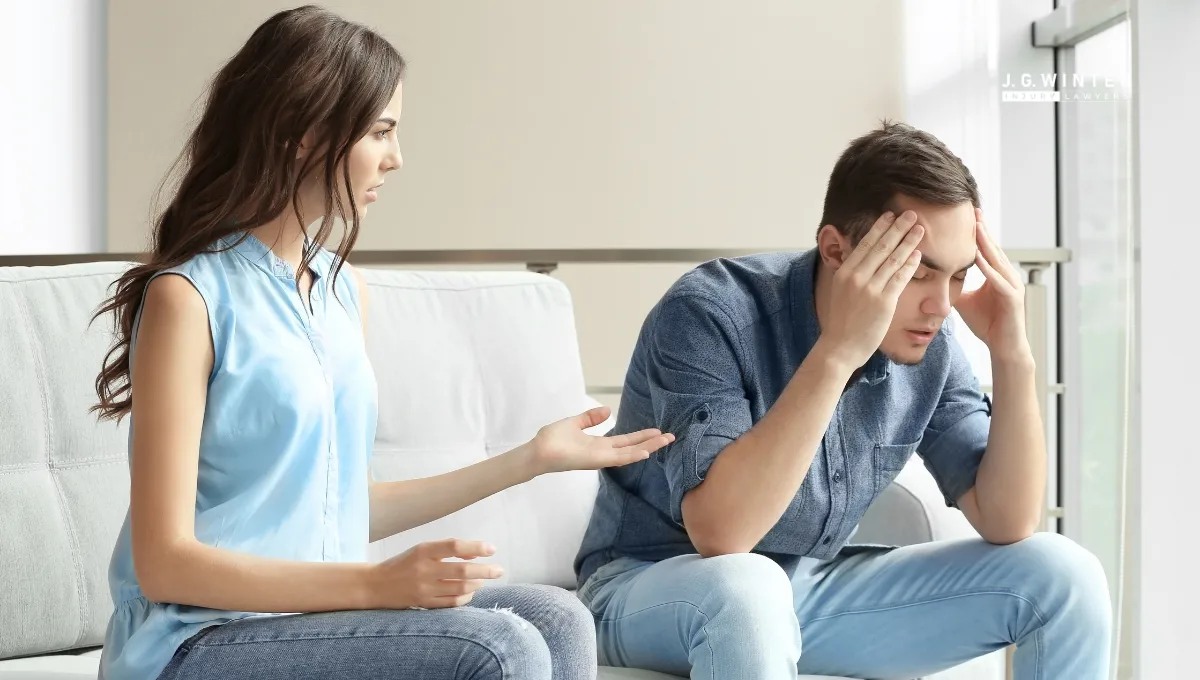
How to cope with PTSD after a car accident
Coping with PTSD after a car accident begins by recognizing that recovery is possible. Healing takes time, but each step brings survivors closer to emotional stability. The following therapies and self-help strategies offer essential support throughout the recovery process.
Therapy and treatment options
Several treatments help manage PTSD after a car accident. Each option offers different benefits based on individual needs and comfort levels:
- Cognitive Behavioral Therapy (CBT): Reframes negative thoughts and often shows positive results within a few months.
- Eye Movement Desensitization and Reprocessing (EMDR): Reduces distress linked to traumatic memories and is widely available through licensed therapists.
- Trauma-Focused Therapy: Addresses the root causes of emotional pain and can be done individually or in group settings.
- Psychiatric Care: Provides medication support for anxiety, depression, or sleep issues when therapy alone is insufficient.
Self-help strategies that can make a difference
Simple habits help survivors regain control after PTSD from a car accident. Journaling thoughts, practicing mindfulness, joining a support group, and building a steady daily routine make healing more manageable. Small, consistent steps on a daily and weekly basis lead to real and lasting emotional recovery over time.
Getting necessary medical and legal help
Recovering from PTSD after a car accident often requires a strong support team. Accessing proper medical care and trusted legal guidance plays a critical role in rebuilding stability and emotional health.
Why you shouldn’t wait to see a doctor for PTSD
Seeing a doctor early helps you begin treatment and build essential proof for supporting any future legal claim. Here is how:
- Early Diagnosis: Starts treatment sooner and improves your chances of full emotional recovery.
- Medical Records and Evaluations: Create comprehensive and accurate documentation to support your legal claim for full compensation.
- Expert Witnesses: Provide validating information for medical documentation to explain how PTSD impacts your daily life.
Waiting too long weakens your case and makes it harder to link PTSD directly to the accident.
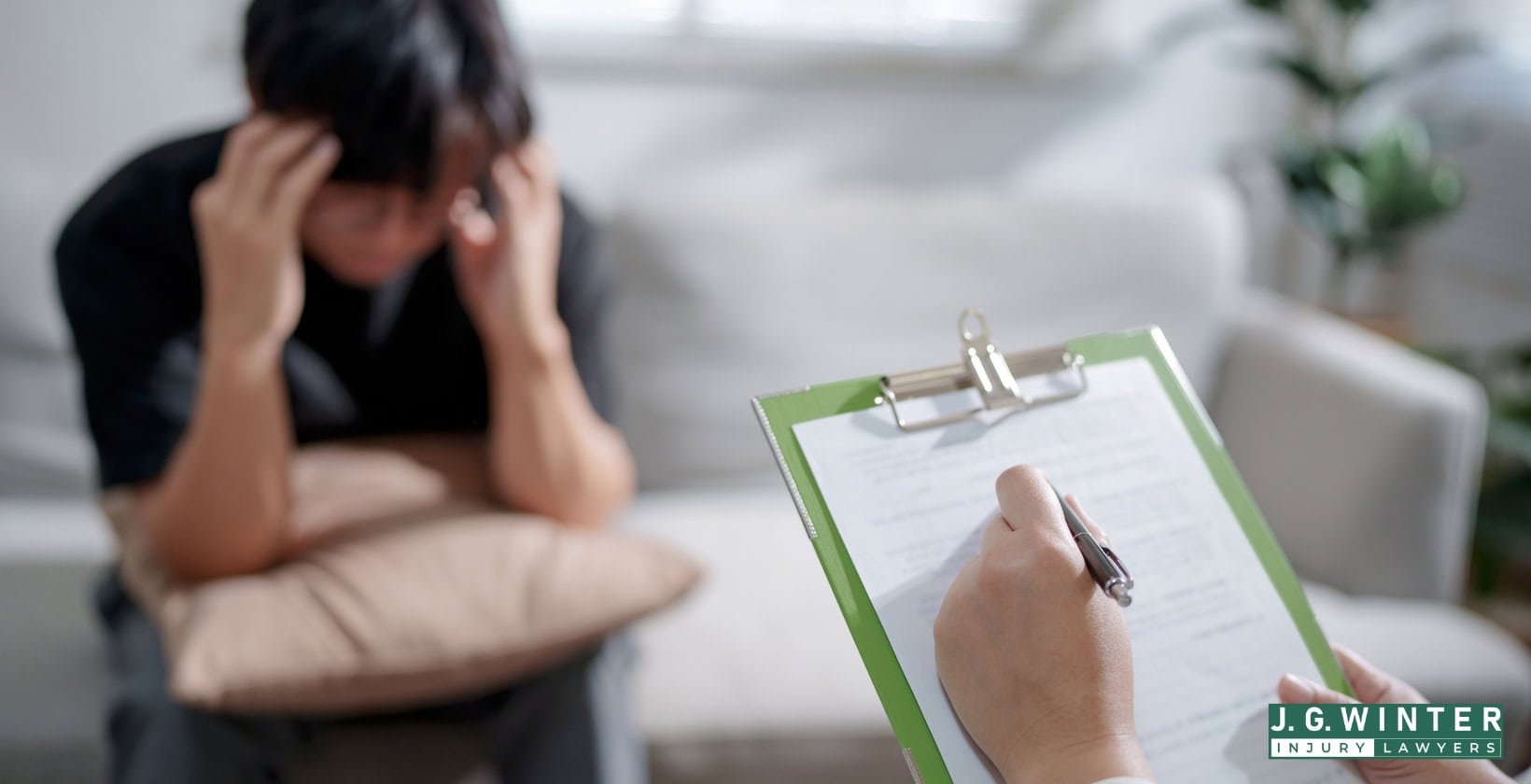
How a car accident lawyer can help with PTSD claims
A car accident lawyer helps gather medical records, secure expert testimony, and calculate the full value of a PTSD claim. By directly linking emotional injuries to the crash, a car accident lawyer strengthens the case and fights for the compensation needed to support emotional and financial recovery.
How our law firm supports PTSD car accident victims?
At the Law Offices of J.G. Winter, we recognize the serious challenges PTSD creates after a car accident in Sacramento. Our team approaches these cases with the compassion, skill, and legal experience needed to support your full recovery.
Why choose Law Offices of JG Winter?
- Experience handling PTSD cases: With offices in Sacramento and Folsom, our team has proven experience managing PTSD claims after serious car accidents in Northern California.
- Compassionate support throughout your case: We approach every case with the utmost care, recognizing both emotional and legal challenges.
- Focus on real results: We work tirelessly to secure full compensation and support your rebuilding process.
- Personal guidance every step of the way: We provide consistent support, clear communication, and a full commitment to your recovery.
Talk to a legal team that understands PTSD victims
Posttraumatic stress disorder after a car accident affects every part of life, but the right support makes recovery possible. At the Law Offices of J.G. Winter, we listen, guide, and fight for your full emotional and financial recovery.
Contact us today to work with a Sacramento-based team that fully understands your experience and is committed to helping you rebuild your life and mental health with strength, expedience, and confidence.

